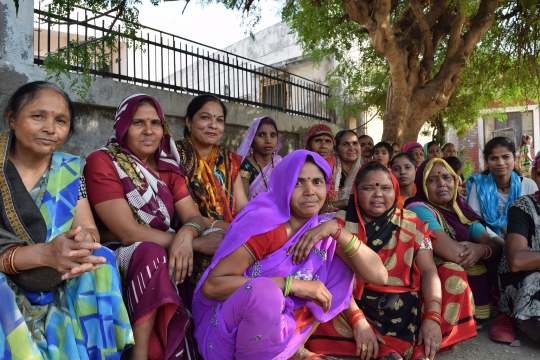Addressing gender inequality in economic opportunities in developing countries has the potential to improve the household’s nutrition as well. A study by EFD Researcher Nikhita Sanghwan and Shalander Kumar from the International Crops Research Institute for the Semi-Arid Tropics (ICRISAT) reinforces the need to enhance female labour force participation (FLFP) to improve food security and health outcomes.
The study uses a unique rural household-level panel data from the village dynamics studies of ICRISAT in semi-arid regions of India and carries out a seasonal analysis of the effect of rural women labour force participation on the dietary diversity of the household and value of home-production. The study covers 18 villages from the States of Andhra Pradesh, Gujarat, Karnataka, Maharashtra and Madhya Pradesh. It shows that an increased participation of women in the labour force enhances the dietary diversity of the household, which is a good indicator for household-level food security.
Engagement of rural women in the labour market not only generates income that relaxes the budget constraint of the household but also empowers them with financial independence. The ensuing liquidity allows for the purchase of a more diversified food basket thereby, improving the nutritional intake of the households.
Differential effects of paid and unpaid work
“It’s important to consider the nature of engagement of women in the labour market”, says EFD Researcher Nikita Sangwan.
Researchers involved in the project find that employment in paid activities, independent from the influence of men, improves dietary diversity by increasing women’s involvement in household decision-making and exposing them to more diverse dietary practices and eating patterns.
On the other hand, unpaid activities like working on a family farm and livestock rearing, although not empowering, increase consumption of a greater variety of home-produce food items.
Time burden
But the involvement of women in the labour force may increase their time burden. It may also take away time from unpaid activities that generate goods for self-consumption and other domestic chores, including cooking. The study rules out any reduction in the value of the goods produced at home coming from FLFP.
Is the improved dietary diversity of the household at the cost of women’s well-being? Contrastingly, the study finds evidence of a significant improvement in the health indicator of women. Improved household dietary diversity along with empowered women who have better control over the food choices they make for themselves as well as their children offset any pernicious effects of an increased time burden.
The findings from the study underscore the potential to harness synergies between nutrition enhancing and female employment generating schemes to address the malnutrition challenges faced by developing countries.
This evidence also highlights the need to increase women’s participation in the rural labour force by designing appropriate institutional, technological, financial and market interventions.
Sangwan is researcher at EFD, India Centre and Kumar is Principal Scientist at ICRISAT
